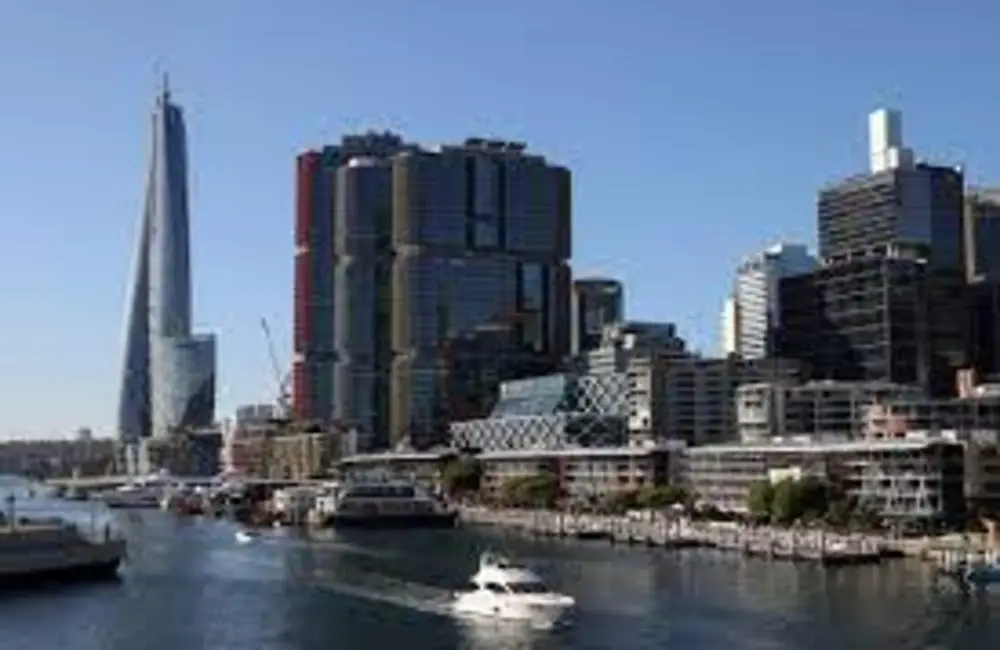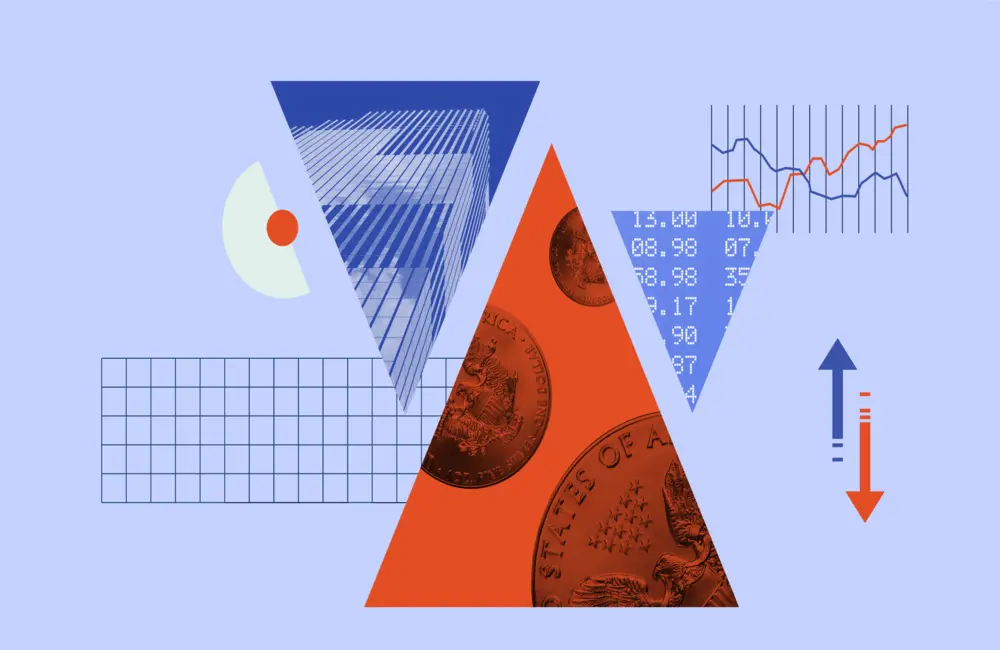Investors remained split over their prediction for the Federal Reserve’s upcoming interest rate decision.
ASX futures had risen 42 points or 0.6% as of 7:00am on Tuesday, indicating gains at the start of trade.
US stocks climbed Monday on hopes for stability in the banking sector after regulators engineered a deal for Swiss banking giant UBS to take over rival Credit Suisse.
The Dow Jones Industrial Average added 382 points, or 1.2%, and the S&P 500 rose 0.9%. The tech-focused Nasdaq Composite climbed 0.4%. The indices declined Friday but have been relatively insulated from the banking crisis thus far.
Authorities have sought to halt a dangerous decline in confidence in the global banking system and get ahead of potential stress in markets. As well as the UBS-Credit Suisse deal, regulators moved to bolster international access to US dollars.
In commodity markets, Brent crude oil added 0.8% to $US73.53 a barrel while gold shed 0.4% to US$1,980.41.
Yields on Australian government bonds declined, with the 2 Year dipping to 2.84% and the 10 Year falling to 3.23%. US Treasury note yields continued to plunge, as the 2 Year dropped to 3.94% and the 10 Year sunk to 3.49%.
The Australian dollar climbed to 67.17 US cents from its previous close of 66.99. The Wall Street Journal Dollar Index, which tracks the US dollar against 16 other currencies, edged lower to 96.66.
Asia
Chinese shares ended lower, tracking losses in other Asian markets, as sentiment remained negative amid the Credit Suisse crisis. Telecom stocks led the laggards with China Mobile dropping 9.0% and China Telecom Corp. down 10.0%. Pharma companies also weighed with Jiangsu Hengrui Medicine closing 1.0% lower. Chip makers outperformed with NAURA Technology rising 2.7% and Tongwei Co. gaining 0.7%. The benchmark Shanghai Composite Index closed 0.5% lower at 3234.91, while the Shenzhen Composite Index retreated 0.3%. The tech-heavy ChiNext Price Index ended 0.1% lower.
Hong Kong's benchmark Hang Seng Index ended 2.65% lower at 19000.71. Investors around the world worried about the Credit Suisse crisis, even after UBS Group said it was willing to take over the bank to halt a dangerous decline in confidence in the global banking system. HSBC Holdings fell 6.2% and Standard Chartered was down 7.3%. Almost all the stocks in the HSI fell. Haidilao International Holding dropped 5.1% and AIA Group declined by 4.2%. The Chinese search engine Baidu was the only bright spot, ending 0.9% higher.
Japanese stocks ended lower, dragged by falls in shipping and semiconductor-related shares, as concerns about the turmoil in the global banking industry clouded the economic outlook. Lasertec dropped 5.8% and Mitsui O.S.K. Lines lost 3.7%. Meanwhile, Toyota Industries slid 11% after it suspended domestic shipments of some forklifts due to potential violation of emission regulations. The Nikkei Stock Average fell 1.4% to 26945.67.
India's benchmark Sensex index closed 0.6% lower at 57628.95, tracking regional market declines as investors digested the UBS-Credit Suisse deal. IndusInd Bank dropped 1.8% and HDFC Bank was 0.6% lower as negative sentiment continued to weigh on the global banking sector. Tata Motors dropped 2.0%. Gainers included Hindustan Unilever, which was 2.45% higher, and ITC, which added 0.8%.
Europe
European stocks rose as investors digested the rescue takeover of ailing Swiss bank Credit Suisse by rival UBS. The pan-European Stoxx Europe 600 gained 1%, the German DAX added 1.1% and the French CAC 40 advanced 1.3%.
As part of the Credit Suisse takeover, CHF16B of so-called additional tier-one bonds will be written down to zero. That "raised questions about the rest of the AT1 market, which initially saw some weakness across the rest of the European banking market as AT1 valuations got reassessed," CMC Markets analyst Michael Hewson wrote.
The United Kingdom’s FTSE 100 closed up 0.9% after recovering from an initial fall. "What began as a very 'sea of red' kind of day has turned into a rebound, with stocks clawing back losses. Ultimately, while it is a shock to see a global bank disappear so quickly, it is reassuring to see governments and regulators moving quickly to seal off any source of further contagion," IG's chief market analyst Chris Beauchamp said in a note.
Anglo American was the biggest riser in the British index, finishing up 4.9%, while Standard Chartered was the furthest in the red, ending down 3.0%.
North America
US stocks climbed Monday on hopes for stability in the banking sector after regulators engineered a deal for Swiss banking giant UBS to take over rival Credit Suisse.
The Dow Jones Industrial Average added 382 points, or 1.2%, and the S&P 500 rose 0.9%. The tech-focused Nasdaq Composite climbed 0.4%. The indices declined Friday but have been relatively insulated from the banking crisis thus far.
Authorities have sought to halt a dangerous decline in confidence in the global banking system and get ahead of potential stress in markets. As well as the UBS-Credit Suisse deal, regulators moved to bolster international access to US dollars.
"It's bullish that governments have stepped in," said Ross Mayfield, investment strategy analyst at Baird. But he said any investor optimism is tempered by fears that the turmoil may continue. "So I think it's a relief but with looming uncertainty and angst about what might really be underneath if you keep digging."
Shares in First Republic Bank, currently a key concern for US officials, fell to record lows, according to data going back to 2010. Its stock fell more than 47% on Monday. Major bank chief executives, led by JPMorgan Chase CEO Jamie Dimon, are discussing fresh efforts to stabilize the troubled bank, The Wall Street Journal reported.
Other regional banks rallied, with PacWest Bancorp shares up 10.8% and Zions Bancorp shares up 0.8%. Shares of major US banks were little changed.
Investors are split in expecting what the Federal Reserve will do when it meets this week. Goldman Sachs Group is projecting the Fed will keep rates steady. Traders in interest rate futures ascribe just under a 3-in-5 probability of a quarter-point rate increase, according to CME Group's FedWatch tool.
Daleep Singh, former US deputy national security advisor for international economics, said either option is fraught.
"Doing less on rate hikes now means you may have to do more later," with potentially worse consequences, Mr. Singh said. But, according to Mr. Singh, any hike "risks triggering nonlinear damage when fear is rampant and psychology is fragile."
Mr. Singh predicted the Fed will increase rates by a quarter-percentage point and that officials will signal that they need to be less aggressive going forward, similar to the European Central Bank last week.






















